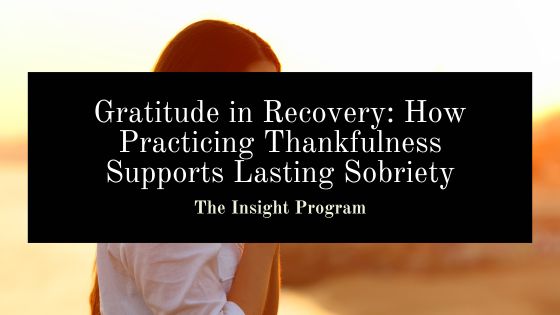Recovery is a journey that requires more than just abstaining from substances. It involves building a life filled with meaning, purpose, and emotional resilience. One powerful tool that supports long-term sobriety is the practice of gratitude. Focusing on thankfulness helps individuals shift perspective, manage stress, and strengthen both mental and emotional well-being.
The Power of Gratitude
Gratitude is the conscious recognition of the positive aspects of life. In recovery, it encourages individuals to focus on what is going well rather than what has been lost or what feels challenging. This shift in mindset can reduce feelings of negativity, self-criticism, and hopelessness, which are common during early recovery.
Practicing gratitude helps the brain rewire thought patterns. By regularly acknowledging positive experiences, no matter how small, individuals cultivate optimism and emotional balance. This positive outlook can be a protective factor against relapse, as it reduces the intensity of stress and triggers that often lead to substance use.
Gratitude and Emotional Resilience
Recovery brings many emotional challenges, including guilt, shame, and anxiety. Gratitude allows individuals to process these emotions in a healthier way. By focusing on what they are thankful for, people can create a buffer against difficult feelings and develop stronger emotional resilience.
For example, appreciating supportive friends, progress in therapy, or small daily victories can create a sense of stability. These moments of acknowledgment reinforce the idea that life has value and meaning beyond addiction. This perspective encourages continued commitment to sobriety and personal growth.
Practical Ways to Practice Gratitude
There are many ways to incorporate gratitude into daily life. Journaling is one of the most effective methods. Writing down three things you are thankful for each day, whether big or small, creates a tangible record of positivity that can be revisited during challenging times.
Other practices include verbal expressions of gratitude, such as thanking a friend, family member, or mentor for their support. Meditation focused on thankfulness can also help individuals cultivate a mindful awareness of positive experiences. Even small daily actions, like appreciating a sunrise, a warm meal, or a moment of quiet, contribute to building a gratitude habit.
Building Connection Through Gratitude
Gratitude also strengthens relationships. Recovery often involves repairing bonds with family, friends, and support networks. Expressing appreciation nurtures trust, communication, and mutual respect. When gratitude becomes a regular practice, it fosters a sense of belonging and community, which are critical to maintaining sobriety.
Conclusion
Gratitude is more than a feeling; it is a practice that supports lasting recovery. By focusing on thankfulness, individuals can shift their mindset, strengthen emotional resilience, and deepen connections with others. Incorporating gratitude into daily routines—through journaling, reflection, or verbal acknowledgement- creates a solid foundation for long-term sobriety.
In recovery, each day presents both challenges and opportunities. Practicing gratitude helps individuals notice the good, honor progress, and find strength in the present moment. Over time, this focus on thankfulness becomes a powerful tool for living a meaningful, balanced, and sober life.

